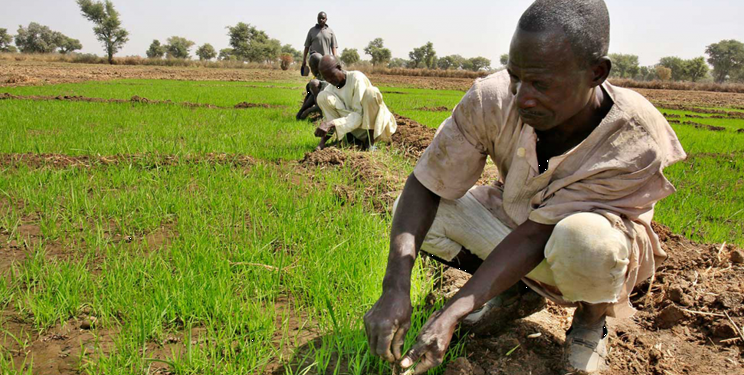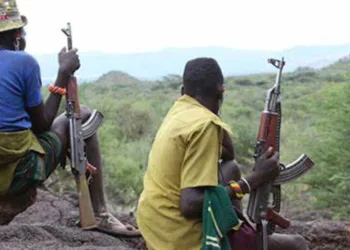Nigerian farmers in the Northwestern region have pursued an alternative option for safety in the last three years. This option has forced them to pay a whooping sum of N140 million between 2020-2023.
These payments are termed ” harvest levies” for the farmers to access their farmland. Revealed in a report titled ‘Levies or Lives – The Dilemma Of Farmers In Northern Nigeria,’ conducted by SBM Intelligence, an Africa-focused geopolitical research firm, the farmers seem to be fighting to access their farms.
The report sheds light on the escalating crisis of food insecurity gripping Nigeria, evolving into an epidemic of alarming proportions.
In the Northeast, farmers live in constant fear of violence, rendering them unable to tend to their fields for the risk of fatal attacks. Meanwhile, farmers in the Northwestern region are forced to pay hefty sums merely to ensure their survival amidst the pervasive threat of violence and instability.
This dire situation underscores the urgent need for comprehensive solutions to address the multifaceted challenges plaguing Nigeria’s agricultural sector.
Owing to the prevailing insecurity in these regions, a staggering 26.5 million people, constituting approximately 11.5% of Nigeria’s estimated population, are anticipated to confront conditions categorized as Crisis Phase 3 or worse in terms of acute food insecurity during the impending peak of the June-to-August 2024 lean season.
This critical period marks the height of food scarcity, and the dire projection underscores the urgent need for comprehensive interventions to address the escalating challenges affecting a substantial portion of the country’s population.
The scale of the crisis necessitates a concerted effort to mitigate the impact and ensure the well-being of the affected communities.
Also Read: Meet Yunusa Jibrin, Who Wants FG to Fight Bandits with AI
How Do Nigerian Farmers In The Northwestern Region Protect Their Lives and Farmlands?
According to the report, bandits have imposed a substantial financial burden on farmers, with a total levy amounting to N224.9 million.
This exorbitant fee serves as an entry requirement, compelling farmers to pay before gaining access to their farmlands.
The imposition of such levies not only adds a financial strain on the already challenging agricultural sector but also underscores the complex challenges farmers face in regions affected by insecurity.
In a distinct but equally concerning account, farmers in a specific local government area in Kaduna have allegedly paid over N400 million in taxes to bandits.
This significant financial contribution is purportedly necessary for farmers to engage in agricultural activities, including farming and harvesting their produce.
The staggering amount reflects the alarming extent to which banditry has infiltrated the agricultural landscape, creating a detrimental impact on the livelihoods of farmers who are compelled to navigate these precarious conditions.
These reports collectively underscore the urgent need for comprehensive measures to address the pervasive threat of banditry and protect the agricultural sector, a critical component of Nigeria’s economy.
From the reports;
“Farmers are now forced to pay levies to bandits to access their farmlands and harvest their crops. This practice, which began around 2019, has become more pronounced in subsequent years, particularly during the last farming season. As a result, millions of naira have been channelled to bandit groups through this shift towards farming taxation,”
“Those who resist these demands face severe consequences, including abduction, murder or confiscation of their produce.”
What Does This Mean For Nigeria’s Economy?
Over the past decade, Nigeria has faced escalating internal security crises, significantly impeding economic growth, with a notable impact on the agriculture sector.
The pervasive challenges include the persistent threat of the Boko Haram insurgency in the North, leading to the kidnapping and tragic loss of lives.
Additionally, the enduring conflict between herders and farmers in the north-central region further compounds the complexities of the security landscape.
These multifaceted issues not only pose a direct threat to the safety and well-being of the population but also contribute to a broader economic slowdown, particularly in the vital agricultural sector, highlighting the urgent need for comprehensive solutions to address these pressing challenges.
According to the latest report from the National Bureau of Statistics (NBS), the headline inflation rate soared to 29.90% in January. Food inflation, which constitutes 50% of the overall inflation rate, experienced a notable increase, rising to 35.41% from the previous month’s 33.93%.










